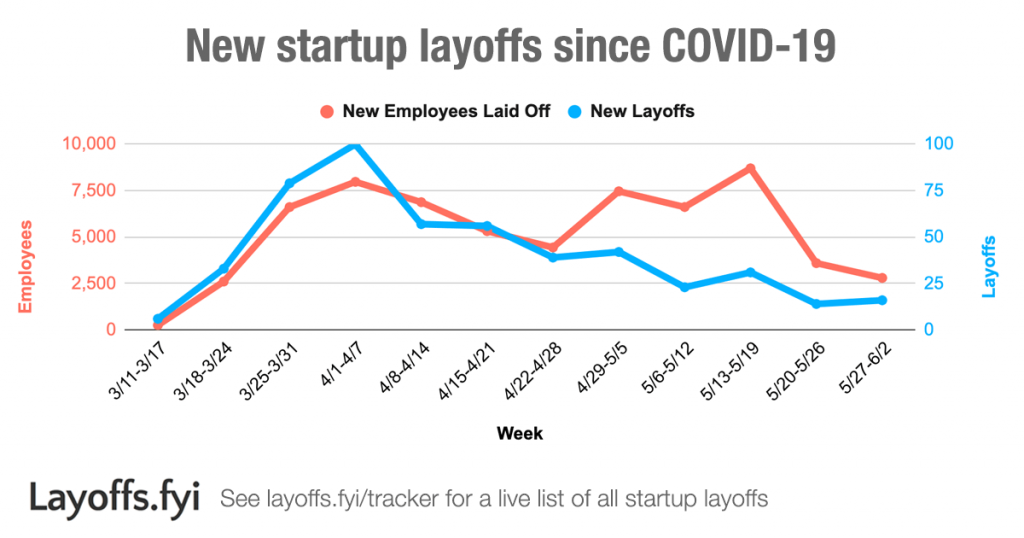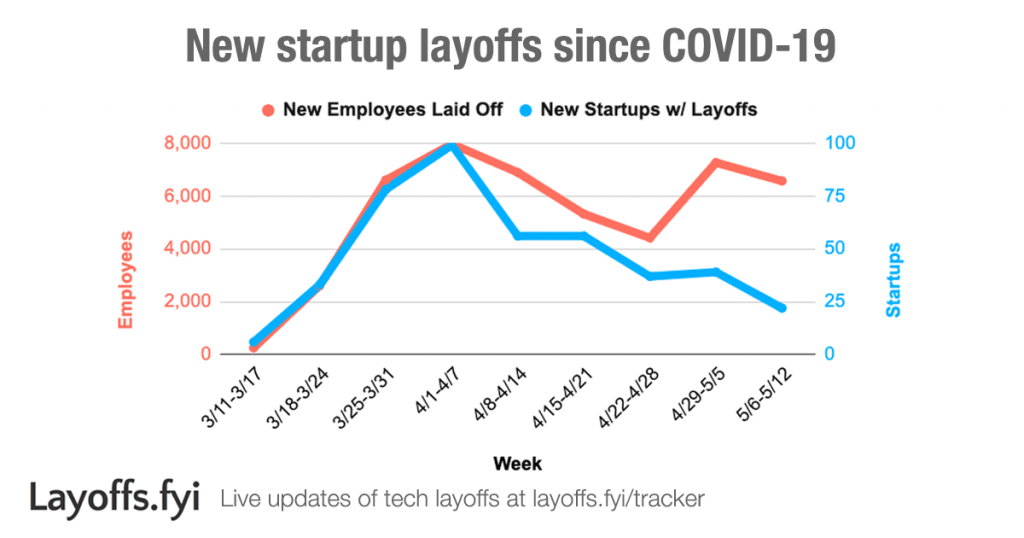After peaking in mid-May, the number of new employees laid off from tech startups has declined to its lowest level since the beginning of the coronavirus pandemic.

2,803 employees were laid off from tech startups during the week of 5/27-6/2. This represents the lowest weekly number since the week of 3/18-3/24, and is 68% lower than the pandemic peak 2 weeks ago.
The number of startups cutting jobs continues to fall as well. Only 16 startups conducted layoffs during the week of 5/27-6/2. There’s now been a clear downward trend over the past 8 weeks, ever since a whooping 100 startups cut jobs during the week of 4/1-4/7.
Although both the number of layoffs and the number of employees laid off have been falling, the average layoff has gotten bigger. Of the 10 biggest tech layoffs since the coronavirus was declared a pandemic, 6 of them have occurred in the past month. Stitch Fix laid off 1,400 workers just last Monday.
| Company | # Laid Off | % | Industry | Date |
|---|---|---|---|---|
| Uber | 6,700 | 25% | Transportation | 5/6, 5/18 |
| Groupon | 2,800 | 44% | Retail | 4/13 |
| Airbnb | 1,900 | 25% | Travel | 5/5 |
| Agoda | 1,500 | 25% | Travel | 5/18 |
| Stitch Fix | 1,400 | 18% | Retail | 6/1 |
| Ola | 1,400 | 35% | Transportation | 5/20 |
| Stone | 1,300 | 20% | Finance | 5/12 |
| Toast | 1,300 | 50% | Food | 4/7 |
| Swiggy | 1,100 | 14% | Food | 5/18 |
| Magic Leap | 1,000 | 50% | Consumer | 4/22 |
In total, 490+ startups have now laid off 63,000+ employees during the coronavirus pandemic, according to the Layoffs.fyi Tracker.
Though the cumulative damage has been severe, there are signs that the worst may be behind us. Mirroring the trend in tech layoffs, nationwide unemployment filings also recently reached its lowest weekly level since mid-March. And the overall unemployment rate unexpectedly fell last week, a major surprise compared to prior forecasts.
As states ease months-long lockdown restrictions, the tech sectors hit hardest by layoffs (like transportation, travel, and retail) may finally be recovering. Yesterday, Airbnb reported a surge in domestic rental bookings following months of pent-up demand. And Lyft announced that rides booked grew 26% in May compared to April.
Though recent signs look promising, people are still tempering their expectations. “I had a rule that even in our darkest of hours I wouldn’t get too low because that’s just a moment in time,” Airbnb CEO Brian Chesky told Bloomberg. “And if I can’t get too low, then I can’t get too up.”
